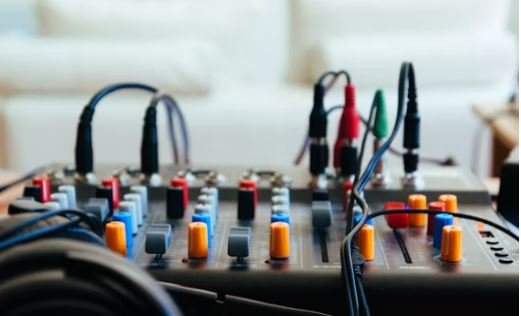In recent years, artificial intelligence has begun reshaping virtually every creative industry—from design to storytelling. Now, the music world is undergoing its own AI-driven evolution. AI music generators are gaining ground, allowing amateurs and professionals alike to compose, remix, and experiment with music like never before.
This technological leap is not just about replacing musicians or composers—far from it. It’s about augmenting creativity, simplifying workflows, and expanding access to music production for everyone. In this article, we’ll dive deep into how AI music generation works, who it’s for, and how tools like Adobe Express are leading the way.
What Is an AI Music Generator?
An AI music generator is a tool powered by machine learning algorithms that can autonomously create musical compositions based on a set of inputs or parameters. Whether you’re seeking background scores, theme songs, or looped beats, these systems can generate original tracks in seconds.
Most AI music tools use datasets containing thousands—sometimes millions—of existing music samples. The algorithm “learns” patterns of rhythm, melody, harmony, and structure to produce new compositions that sound human-made.
How Does AI Generate Music?
AI music generation combines elements from several machine learning disciplines, including:
- Neural networks that model musical sequences
- Natural language processing (NLP) to interpret textual prompts
- Audio signal processing for realistic synthesis
- Reinforcement learning for refining outputs based on feedback
When you enter a prompt—such as “lo-fi beat for studying” or “upbeat electronic track”—the AI interprets it, references its trained data, and generates a composition accordingly.
Some platforms offer customization options, letting you choose the length, genre, instruments, and even tempo. Others provide downloadable files for use in videos, games, podcasts, or digital campaigns.
Why AI Music Generators Are Game-Changers
1. Accessibility for Everyone
Before AI, music production required expensive software, studio time, and years of training. AI generators now let marketers, content creators, and hobbyists compose music without ever learning to play an instrument.
2. Faster Production Cycles
Need royalty-free background music for your YouTube video? AI music tools can generate multiple variations within seconds—far faster than traditional methods.
3. Cost-Efficiency
Hiring composers or purchasing music licenses can be expensive. AI tools are often subscription-based or even free, making them a budget-friendly alternative.
4. Creativity on Demand
Sometimes, inspiration doesn’t strike on time. AI fills the gap with endless creative suggestions, letting you build on machine-made melodies with your own edits.
Adobe Express: A Leading AI Music Generator
Among the growing field of AI tools, Adobe Express AI Music Generator stands out for its simplicity and quality. Known for its excellence in design and media tools, Adobe has expanded its Express suite to include intuitive music creation.
Key Features:
- Easy-to-use interface for beginners and pros alike
- Variety of genres including classical, hip hop, electronic, and more
- Fast rendering and export options
- Royalty-free tracks for personal and commercial use
Whether you’re scoring a presentation, short film, or social media post, Adobe Express makes it possible to create custom music with just a few clicks.
Who Can Benefit from AI Music Generators?
The applications are nearly endless. Here’s who’s already using AI to create music:
- Content creators & YouTubers: Background music for vlogs, tutorials, and intros
- Game developers: Ambient loops or interactive soundtracks
- Educators: Audio snippets for online courses or presentations
- Businesses: Custom jingles or sound branding
- Musicians: As a base to build original compositions or collaborate with AI
Limitations to Keep in Mind
As with all AI tools, there are some caveats:
- Originality: Though unique, AI-generated tracks may resemble pre-existing works. Always check for copyright concerns, especially when using outputs commercially.
- Emotion and nuance: AI can emulate styles but may lack the deep emotional resonance of human-made music.
- Customization limits: While tools are improving, they still can’t match the detailed precision of manual production in complex compositions.
Still, these trade-offs are quickly shrinking as AI continues to evolve and integrate more sophisticated datasets.
Ethical and Legal Considerations
As AI-generated content becomes more prevalent, new legal questions emerge:
- Who owns the music: the user or the platform?
- Can AI-generated music be copyrighted?
- How will this affect employment in the music industry?
Platforms like Adobe have begun addressing these by offering clear terms of use and royalty-free licensing. However, creators must stay informed about how content can be used, particularly in monetized or public-facing projects.
Future Outlook: AI’s Role in Music Creation
The next few years will likely bring even more powerful tools that:
- Integrate voice and lyric generation
- Offer real-time collaboration with human musicians
- Adapt compositions dynamically in response to user feedback
- Blend genres and cultural elements more seamlessly
AI is not a replacement for human creativity but a robust companion to it. The best results will come from collaboration between man and machine, where human emotion meets algorithmic efficiency.
Final Thoughts
AI music generators are democratizing music like never before. They empower people with no formal training to create soundtracks, beats, and melodies instantly, and allow seasoned artists to push the boundaries of creativity.
Whether you’re a content creator needing quick background tracks or an innovator eager to experiment with new soundscapes, tools like Adobe Express AI Music Generator are opening doors to a future where anyone can compose music—no studio required.
As technology continues to evolve, one thing is clear: the future of music is being written not just by composers, but also by code.

